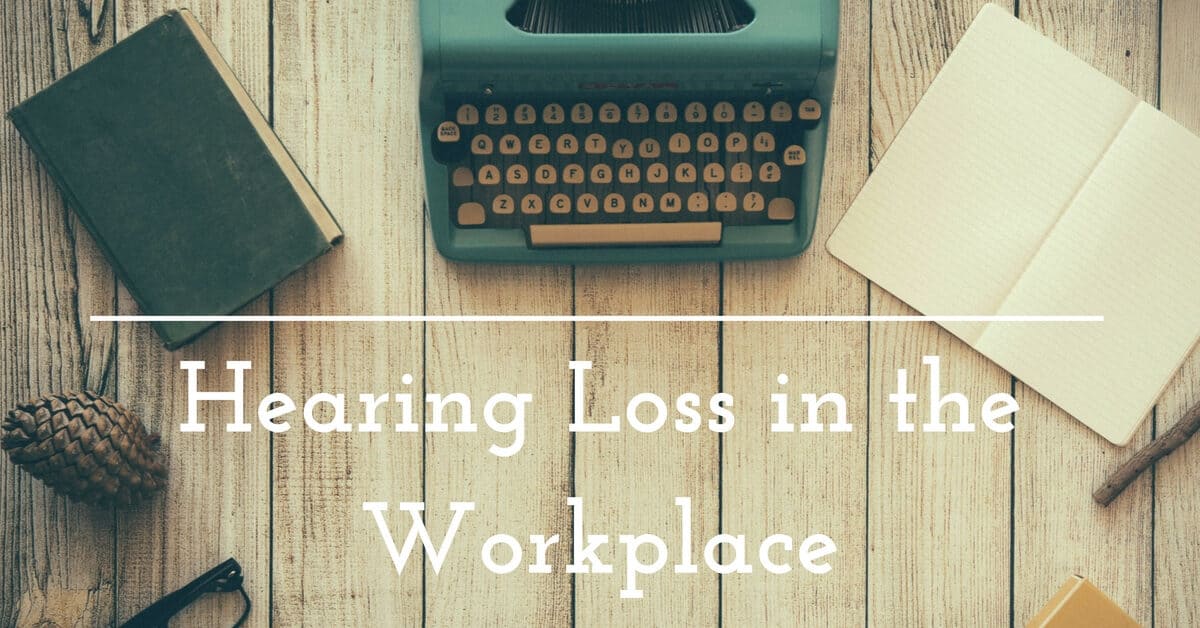What you must know if you’ve struggling to hear at work.
It is estimated that nearly 40 million Americans have some degree of hearing loss. Approximately 60% of people in the American workforce experience some degree of hearing loss. According to some sources, more than 10 percent of full-time employees have a diagnosed hearing problem, and another 30 percent suspect they have hearing loss but have not sought treatment.
Changing Workforce Demographic
The demographic of the American workplace is changing. Baby boomers are staying in the workforce longer, creating a shift toward a maturing labor force. Although Millennials have recently surpassed Baby Boomers and the so-called Gen-X for generational percentage of the workforce, the three generation groups are very close in numbers in the American work landscape.
Hearing Loss Can Affect All Ages
There is a misconception that hearing loss affects only the elderly.
While the incidence of hearing loss does increase with age, the majority (65%) of people with hearing loss are younger than age 65. There are more than six million people in the U.S. between the ages of 18 and 44 with hearing loss, and nearly one and a half million are school age.
Hearing loss breaks down to generational age groups as follows:
• 3 in 10 people over age 60 have hearing loss;
• 1 in 6 baby boomers (ages 41-59), or 14.6%, have a hearing problem;
• 1 in 14 Generation Xers (ages 29-40), or 7.4%, already have hearing loss;
• At least 1.4 million children (18 or younger) have hearing problems;
• It is estimated that 3 in 1,000 infants are born with serious to profound hearing loss.
There are so many causes of hearing loss aside from age: genetic, illness, environmental noise exposure, injury, and more. It is easy to see how hearing loss has come to affect so many people in all age brackets.
Effects of Untreated Hearing Loss in the Workplace
• Being able to effectively communicate in the workplace is a fundamental component of the majority of jobs. Communications with co-workers, the public, and administrators is critical to doing one’s job efficiently and productively.
• Untreated hearing loss can greatly compromise a worker’s job performance, lead to mistakes and productivity problems, and can even cause safety issues.
• The economic impact of untreated hearing loss has been well studied. People with untreated hearing loss earn a reported $14,000 to $30,000 less than hearing peers, depending on the degree of loss. This is due to loss of productivity, missed opportunity for advancement, absenteeism, and presenteeism. Presenteeism is defined as the practice of coming to work despite illness, injury, anxiety, etc., often resulting in reduced productivity.
• While those with the mildest hearing losses have fewer effects to their income and employment prospects, those with significant loss can expect a greater economic and social impact.
• The longer one waits to address their hearing loss, the greater the negative impact in the workplace.
Why Not Seek Treatment?
The vast majority of people with hearing loss can benefit from hearing aids. The use of hearing aids has been shown to reduce the risk of income loss dramatically.
However, there is a perceived stigma associated with hearing aids for many people. Younger persons might consider them to be the hallmark of a defect, “uncool”, or associated with old age. Older persons often will delay the use of hearing aids for the same reasons….not wishing to be thought of as elderly or declining in the eyes of their younger work peers.
Today’s Hearing Aids
Seeking the help of a hearing professional can change your world! Today’s hearing aids are light-years from the clunky, screeching ungainly-looking devices of old.
• Most newer models of hearing aids are sleeker, smaller, practically invisible, and even stylish!
• Amazing new technology developed for today’s hearing aids allow users to hear from all directions, with customized controls for a variety of sound environments. They are digital, wireless, and can connect to your smartphone for ultimate ease of use. Many models feature rechargeable batteries.
• Many employees are unaware that hearing aids are eligible expenses for FSAs (flexible spending accounts) or HSAs (health savings accounts). Also, it could not hurt to check with your employer’s wellness program. Most employers encourage workers to treat hearing loss rather than to hide it.
Not only does treating hearing loss help the employee, but it helps to create a work environment in which one’s hearing loss does not interfere with job performance, productivity, safety, morale, opportunity, success on the job, and quality of life all around. Contact us at My Hearing Centers to learn more!
My Hearing Centers
We look forward to hearing from you. Call us anytime at (877) 330-2920
or click here

